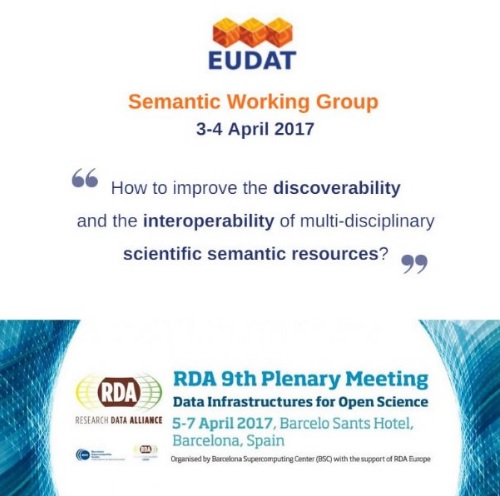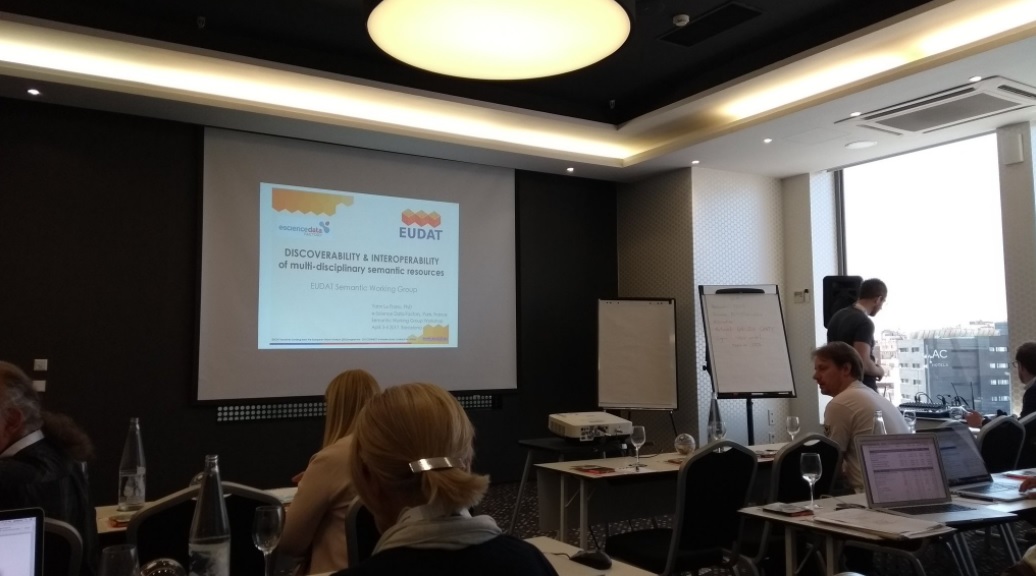
 |
On 3-4 April 2017, EUDAT held a "Semantic Working Group" workshop as co-located event with the 9th RDA Plenary in Barcelona, Spain, which involved over 25 participants. The discussion was set around the question "how to improve the discoverability and the interoperability of multi-disciplinary scientific semantic resources?" and mainly revolved around the relationship between Research Infrastructures and Semantic resources.
|
- The discoverability of the existing semantic resources: where do we find the existing ontological resources for the different domains or from the different communities in EUDAT?
- The interoperability of the existing resources at the level of metadata description and the API: how do we increase interoperability in order to develop a scalable solution to access and harvest the content of these resources?
In the context of the EUDAT Joint Research activities, we are currently developing a prototype of a multi-disciplinary OLS providing a catalogue of semantic resources and services to harvest part of their content to extend the semantic term index.
The co-located workshop with RDA Plenary was organised both to support our work and align it with the different stakeholders, as well as to build an active working group on these specific issues. The workshop was open to any interested participants and included invited leading experts, community developers of semantic resources, the representatives of different domain-specific ontology repositories and various related domain-specific initiatives (click here to see the programme).
- Minimum set of necessary metadata fields to describe ontologies
- What does metadata interoperability mean?
- An ontology market place to support the reuse of ontologies
The interactions between the participants and the strong interest to tackle these issues lead to discussions whether we organize each other via the follow up of the related RDA Vocabulary Service Interest group or the creation of a new one. We are planning to continue this work during a second workshop, co-organized with LifeWatch Italia, which should be held in July (in Lecce, Italy). More information will be communicated on this event soon. Persons interested in contributing to this working group are invited to contact the organizers: Yann Le Franc (ylefranc@esciencefactory.com) or Barbara Magagna (barbara.magagna@umweltbundesamt.at).
